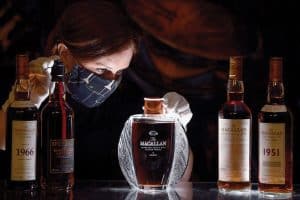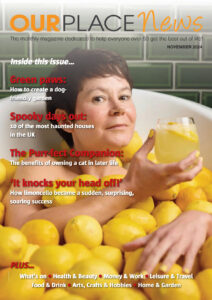A deal has been signed between the University of Glasgow and Everledger, a technology company that makes tamper-free bottle caps.

Inews reports that the world’s first age verification service for whisky has been created through a partnership between Scottish academics and a technology company, as part of efforts to fight fraud.
As the market for rare vintage whiskies has grown, so has the risk of counterfeiting, with researchers estimating that as many as 40 per cent of those in circulation could be fake.
A formal memorandum of understanding has now been signed between the University of Glasgow and Everledger, a technology company that makes tamper-free bottle caps.
The university is home to the Scottish Universities Environment Research Centre (SUERC), where scientists can check the provenance of whisky through radiocarbon dating.
By joining forces, the two organisations hope to be able to offer a service where rare vintages can be accurately dated and then sealed, so buyers can be totally confident they are genuine.
The radiocarbon dating system was developed by SUERC using samples of some of the world’s rarest whiskies, with its expertise now used by retailers, auction houses and collectors.
True age of whiskies
In many cases the system can pinpoint the true age of old whiskies to within a couple of years, and quickly detect fakes.
Research published by SUERC in 2018 showed that of 55 bottles of rare Scotch they had tested, 21 were either fake, or not distilled in the year stated.
In the same year, sales of collectable bottles of single malt Scotch whiskies hit £57.7m, with buyers increasingly seeing good vintages as a potentially lucrative investment.
Gordon Cook, head of the SUERC, said its dating technique was created “in response to a growing interest in these whiskies that, if genuine, can be worth tens of thousands of pounds per bottle, which may encourage fraudsters to attempt to fake the more expensive brands”.
He added: “We’re proud that we are now able to provide the first and only fully secure whisky age verification service in the world with the support of Everledger.”
Research scientist Dr Elaine Dunbar added: “It’s the perfect way to provide additional peace of mind for those who choose to have us verify their whiskies, and to help cut down on the trade in fakes.”
Famous fakes
- In 2017, the most expensive dram of whisky ever sold was found to be fake. A Chinese millionaire paid £7,600 for 2cl of the spirit, purported to be an 1878 Macallan, in a Swiss hotel, but lab tests later confirmed the whisky probably dated back only to the 1970s.
- The year before, the company Rare Whisky 101 said it had discovered that a bottle purporting to be a 1903 Laphroaig was in fact a young blended scotch, even though the bottle and label were genuine.
- In 2018, the SUERC laboratory established that an 1885 Ardbeg acquired from a private owner, and a bottle of rare Thorne’s Heritage blended whisky purchased from an auctioneer were both fake.
(Story source: Inews)

